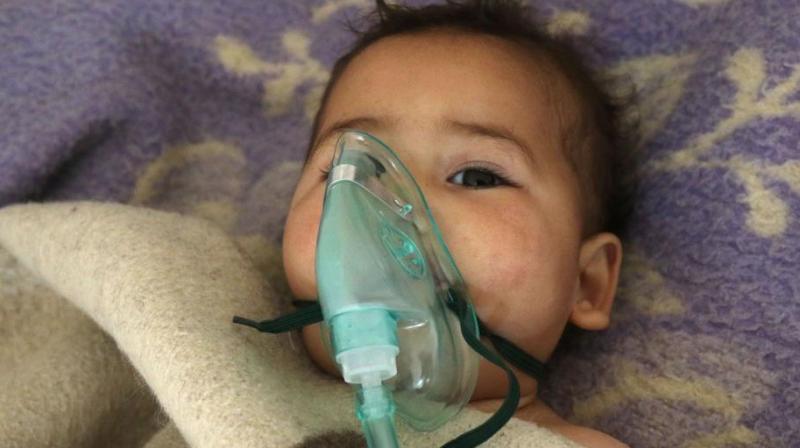Chemical arms watchdog to vote on Moscow bid for new Syria probe

The Hague: The governing body of the global chemical arms watchdog will Thursday vote on a controversial Russian-Iranian move to set up a new team to probe a suspected chemical attack in Syria, sources said.
The draft decision, seen by AFP, calls for an investigation by the Organisation for the Prohibition of Chemical Weapons (OPCW) "to establish whether chemical weapons were used in Khan Sheikhun and how they were delivered to the site of the reported incident" -- even though an official probe is already underway.
It also calls for investigators to visit the Shayrat airbase -- bombed by the United States after the April 4 attack -- to "verify allegations concerning the storage of chemical weapons" there.
The move comes as OPCW head Ahmet Uzumcu said Wednesday that "incontrovertible" test results by the OPCW team already probing the incident had shown sarin gas or a similar substance were used in the attack.
Samples from three people killed in the attack and seven survivors analysed at four OPCW-designated laboratories "indicate exposure to sarin or a sarin-like substance," said Uzumcu.
Western nations have accused the Syrian regime of carrying out the suspected air strike on the rebel-held town in Idlib province which killed at least 87 people, including many children.
But Moscow, the closest ally of Syrian President Bashar al-Assad, is leading efforts to sideline the OPCW's existing fact-finding mission by calling for a new "full-scale and thorough investigation".
'No need' for new probe’
The move has raised hackles at the OPCW executive council meeting this week in The Hague, where nations have lined up to voice support for the existing fact-finding team (FFM).
The team "deserves our full confidence," the Belgian representative to the OPCW told the meeting on Wednesday. "We don't see the need to put in place a new structure."
And the British delegation to the OPCW said in a tweet that Wednesday's talks showed "once again clear support for the ongoing FFM investigation into the attack."
The draft decision, due to be voted on by the council later Thursday, also calls for member states to "provide national experts for participation in the investigation."
That would enable Moscow to put forward its own experts alongside the OPCW's independent teams in a bid "to discredit the results" so far, one source close to the discussions said.
Such a move would also be against the convention against chemical weapons "as it is the role of the OPCW to lead independently any investigation," he added.
However it is almost "mathematically impossible" that the Russian-Iranian draft will be adopted Thursday by the executive council as it would need 28 votes in favour out of the 41 members.
In an unprecedented step, the OPCW's executive council in November condemned Syria's use of toxic weapons -- the council's first open condemnation of a member of the Chemical Weapons Convention.
It came after a joint UN-OPCW investigation concluded in October that the Syrian air force had dropped chlorine barrel-bombs from helicopters on three opposition-held villages in 2014 and 2015. Islamic State jihadists were also found to have used mustard gas in August 2015 in Syria.
Russia last week vetoed a UN draft resolution condemning the April 4 attack and demanding the Syrian government cooperate with an investigation, blocking Security Council action against its ally for an eighth time.
After Moscow initially said a Syrian air strike had struck a "terrorist warehouse" containing "toxic substances," Russian President Vladimir Putin last week accused Assad's opponents of planning to stage chemical attacks to lure Washington deeper into the conflict.
On Friday Russian Foreign Minister Sergei Lavrov criticised the OPCW for not sending experts to the attack site, saying it was "unacceptable to analyse events from a distance". But Uzumcu vowed Wednesday an OPCW team was ready to head to the town "should the security situation so permit".

